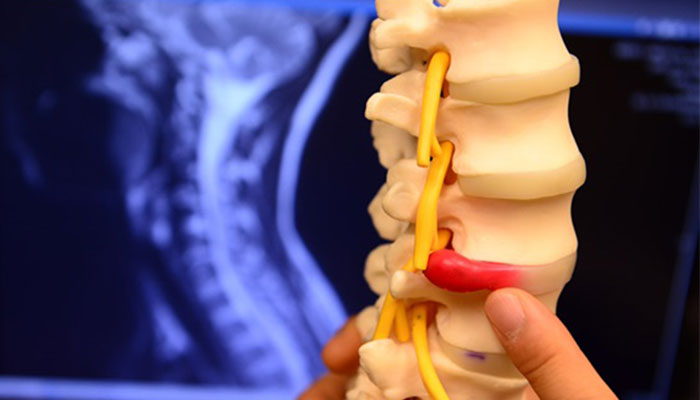
This minimally-invasive surgery removes part of an intervertebral disc to reduce pressure on your spinal cord.
Your spinal cord is a soft bundle of nerves that runs the length of your spine. It carries signals between your brain and your body. Intervertebral discs sit between the bones of your spine. They’re filled with a squashy material that acts as a shock absorber between the bones. Sometimes, due to injury, aging or a spinal deformity, material from one of the discs herniates (slips or bulges out) and puts pressure your spinal cord. The problem normally affects the lower (lumbar) spine or the neck (cervical spine).
People with this problem often complain of painful spasms, as their body attempts to re-stabilise the spine and low-grade pain between flare-ups. A damaged disc in the neck can cause neck pain, nerve pain or spinal cord compression, leading to severe disability. A lumbar herniated disc can cause buttock pain and sciatica (pain radiating down the back of your leg). Some people also experience loss of bladder or bowel control.
During the procedure, your surgeon makes a small incision in your lower back (for a herniated disc in your lumbar spine) or back of your neck (for a herniated disc in your cervical spine), then removes the part of the disc that is herniated. The surgery is performed under general anaesthetic.
Microdiscectomy is done in a hospital or day clinic. It’s usually done as a same day procedure but you may need an overnight hospital stay.
The surgery usually takes 1-2 hours.
Copyright © All Rights Reserved, By Shethna Spine Clinic